During Black History Month we celebrate the contributions of Black Americans who have made UF/IFAS Extension what it is today. Many of the things that make our educational programs recognizable come from innovations made by Black scientists, educators and farmers.
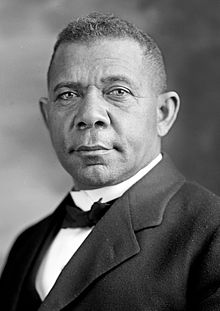
Take our outreach methods, for example. The vans and trailers Extension agents pull up with today, the pop-up displays and tables we set out at fairgrounds, even our online courses and live streaming events–all originated from the Tuskegee Institute (now Tuskegee University, a historically Black land-grant university). Established on a former plantation by Booker T. Washington in 1881, the Tuskegee Institute served as an incubator for scientists, inventors and educators throughout the country.
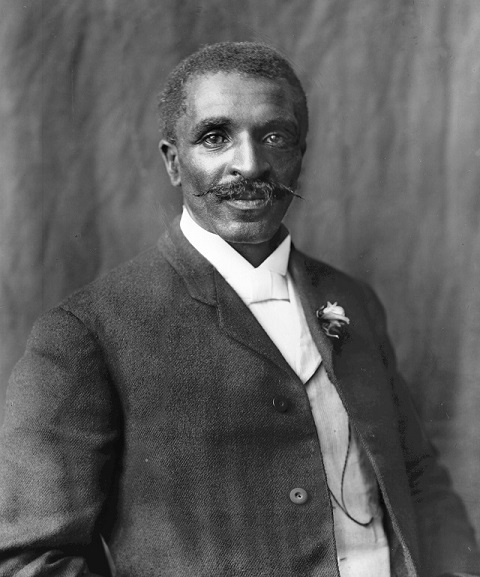
One of those early visionaries was George Washington Carver, who came to Tuskegee in 1896 and established the Experiment Station there. In addition to making crops like peanuts and sweet potatoes a force in agriculture in the South, he also worked to make the research of the institute accessible to local growers. Carver developed the Tuskegee Movable School of Agriculture as a way to bring new, scientifically tested agricultural methods directly to farmers in the rural areas around Macon County, Alabama. The horse-drawn wagon was equipped with seeds, fertilizers, plows, planters and other farm appliances. It also brought speakers from the Institute to demonstrate advanced agricultural methods, such as crop rotation. (Heard of that? Also innovated by George Washington Carver!)
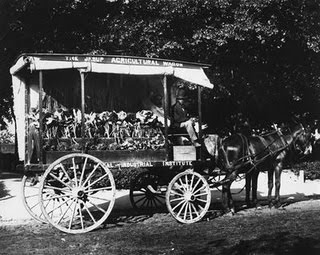
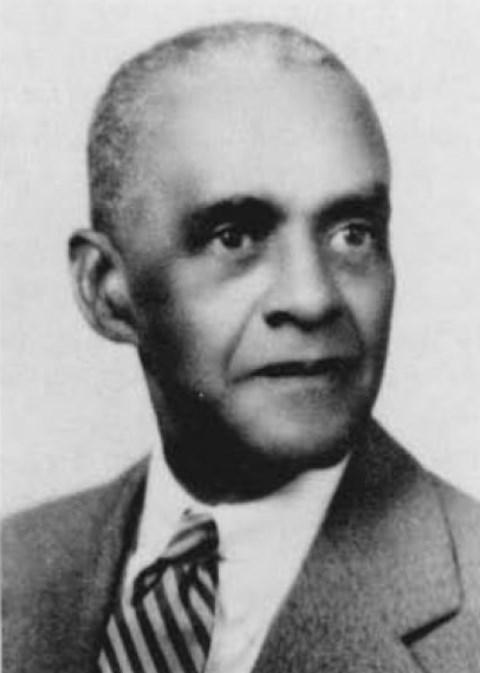
“Opportunity 4 All” is a current campaign for 4-H Youth Development, but did you know that in Florida, those opportunities were set in motion by a Black graduate from the Tuskegee Institute? A.A. Turner came to Florida in 1915 to head what was then known as Extension Project VI, an initiative for “the instruction of negro boys and girls living on farms.” At the time, and indeed until the passage of the Civil Rights Act of 1964, the Florida Extension Service was, like most institutions in the South, racially segregated. Turner established Farm Makers and Home Makers Clubs to give Black youth the same opportunities that white youth had: to gain firsthand knowledge of farming, animal science, health and nutrition, home economics and entrepreneurship. Later these clubs were brought under the umbrella of 4-H, and after many years, the clubs integrated into the 4-H Youth Development Program we recognize today.
Today we take it for granted that 4-H camping is accessible to all youth, regardless of gender, ethnicity or race, but that was not always the case in Florida. Until the persistent lobbying of Floy Britt, a pioneering Extension District Agent, 4-H’s residential camps (Timpoochee, Cherry Lake and McQuarrie), were only open to white youth, while children of color had to resort to tent camping. Thanks to Britt’s work, in 1949 Florida 4-H established Camp Doe Lake in the Ocala National Forest; its ten large cabins could accommodate 130 campers, and it became a site for swimming, crafts and 4-H educational programs through the mid-1960s.
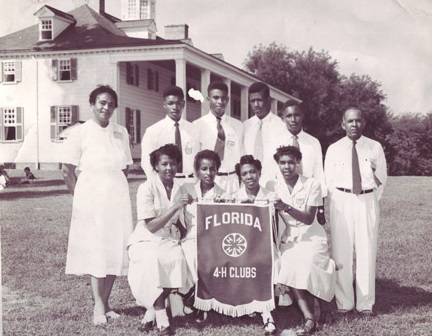
Floy Britt was also instrumental in developing home demonstration—what we now call family and consumer sciences—into a more professional and better-educated organization. In her 1954 Master’s Thesis, she recommended that all home demonstration agents have at least a bachelor of science degree, and that their training include economics, anthropology, psychology and political science. Later, she established the Florida State Association for Negro Home Demonstration Agents to develop quality leadership and a sense of professional pride. In 1981, the Black Archives at Florida A&M University created the Floy Britt Memorial Room to honor her legacy, and she was inducted into the Florida 4-H Hall of Fame in 2002.

One of the most unique things about Extension is its grassroots organization. Extension agents are often long-term residents and familiar faces in the counties they serve; they’re involved in their communities and respond to the needs of their neighbors. Miles Groover was an agriculture agent who embodied this principle. Born on a Jefferson County plantation in 1887, Groover grew up on his grandparents’ rented 60-acre farm. He lived most of his life in Jefferson County, where he became a public school teacher, a successful farmer, a store owner and civic leader, as well as his work as an Extension agent. Groover received the Achievement Award for Meritorious Service to Florida Agriculture from Florida A&M University and the Founder and President’s Award for Outstanding Contributions from the Jefferson County Farmers Union, which he started. In 1998, he was inducted into the Florida Agricultural Hall of Fame.

More recently, we could point to the achievements of Marjorie Moore. Moore started her career in 1977 at UF/IFAS Extension Escambia County, where she was the first Black Extension agent in the county. She used her knowledge of family and consumer sciences to promote 4-H and the Expanded Food and Nutrition Education Program (EFNEP) in Pensacola. She later became the County Extension Director in Bay County—the first Black woman to serve as CED in the state of Florida. Some of the programs she led focused on food and nutrition, food safety, the Council on Aging staff, and school food service staff in the Bay District School System. Days before her retirement in 2018, the Bay County Board of County Commissioners proclaimed Marjorie Moore Day for her dedication and service to the county.
Throughout Black History Month, UF/IFAS has been celebrating the achievements and sharing the thoughts of Black faculty and staff, including Norma Samuel, Roy Beckford, Sally Williams, Joseph Larkin, Tennille Herron, Sandra Anderson, Pamela Bradford, and Marie Thomas.
Each of these individuals, and hundreds more with them, has made a lasting impact on UF/IFAS Extension. Their innovations, expertise and dedication have allowed us to better serve the people of Florida. But the truth of the matter is that Black Americans are still not adequately represented within the Extension service. Black residents account for nearly 17 percent of our state’s population, but less than six percent of IFAS’ workforce. And while the segregation of the Jim Crow era may be historical, systemic racism still affects the careers and the lives of our Black and Latinx colleagues. To help change that, UF/IFAS Human Resources, Diversity and Inclusion is implementing new hiring, evaluation and education initiatives to make our workforce more inclusive, diverse, equable and accessible for all people. Many departments within IFAS are reviewing their curricula and educational resources for bias and hidden messaging. These are steps in the right direction, but we have a long way to go.
Extension is only succeeding when it’s moving forward. We’re moving forward on racial equity so that we can focus not only on Black history, but also on Black lives and Black futures.
Resources:
J. Scott Angle. A Historic Hidden Figure (Miles E. Groover). https://blogs.ifas.ufl.edu/ifas-vp/2021/02/25/a-historic-hidden-figure/
Barbara Cotton. 1982. The Lamplighters: Black Farm and Home Demonstration Agents in Florida, 1915-1965. Tallahassee, Florida A&M University.
George A. Smathers Libraries. Exhibits: African-American Agricultural Extension Agents in Florida. https://exhibits.uflib.ufl.edu/ExtensionAgents/?ct=t(June_IFAS_Matters_6_1_2016_COPY_01)
April Martin. Voices of UF/IFAS:
Sandra Anderson. https://blogs.ifas.ufl.edu/news/2021/02/24/voices-of-uf-ifas-sandra-anderson/
Pamela Bradford. https://blogs.ifas.ufl.edu/news/2021/02/25/voices-of-uf-ifas-pamela-bradford/
Dr. Tennille Herron. https://blogs.ifas.ufl.edu/news/2021/02/11/voice-of-uf-ifas-dr-tennille-herron/
Dr. Joseph Larkin. https://blogs.ifas.ufl.edu/news/2021/02/23/voices-of-uf-ifas-dr-joseph-larkin/
Dr. Norma Samuel. https://blogs.ifas.ufl.edu/news/2021/02/16/voices-of-uf-ifas-dr-norma-samuel/
Samantha Murray. UF/IFAS Celebrates Black History Month. https://blogs.ifas.ufl.edu/news/2018/02/19/uf-ifas-celebrates-black-history-month/
Darryl Palmer. Project VI: Florida Extension in the Era of Segregation. https://blogs.ifas.ufl.edu/ifascomm/2014/02/13/project-vi-florida-extension-in-the-era-of-segregation/
Lourdes Rodriguez. Marjorie Moore: An Agent of Change. https://blogs.ifas.ufl.edu/news/2020/03/18/uf-ifas-spotlights-marjorie-moore-an-agent-of-change/
Hannah Wooten. The Roots of Cooperative Extension. https://blogs.ifas.ufl.edu/orangeco/2020/07/29/the-roots-of-cooperative-extension/
 3
3
